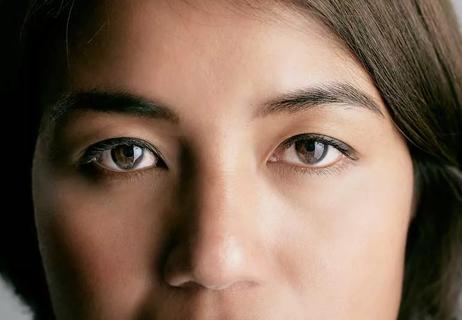And six warning signs for when they're not

Once an idealistic 20-something, you thought this day would never come. But here you are at your local pharmacy, trying on — gasp! — your first pair of reading glasses. Has it really come to this?
Advertisement
Cleveland Clinic is a non-profit academic medical center. Advertising on our site helps support our mission. We do not endorse non-Cleveland Clinic products or services. Policy
The medical term for this seemingly inevitable rite of passage is presbyopia, and it describes how our vision changes as we age. But is there any way to avoid it?
“Nothing escapes time,” says ophthalmologist Claudia Perez-Straziota, MD. “Our hair doesn’t. Our joints don’t. And our eyes don’t. But there are things you can do to lessen the impact.”
Our eyes are like a camera — the lenses inside automatically focus on whatever we need to see. “That process works through the contraction and relaxation of certain muscles that move our lens forward or backward,” explains Dr. Perez-Straziota. “When we’re young, our eyes can ‘accommodate,’ or focus at different distances, without the help of glasses or other aids.”
But as we age, our body gets less firm — and not just our waistline. Those eye muscles also experience a middle-age spread and start losing their ability to adjust and accommodate. The dominoes keep falling, eventually affecting your ability to see things up close.
“This is called presbyopia. It’s not just common — it’s a given. And it starts happening at around age 40,” reports Dr. Perez-Straziota.
Aging eyes don’t pull any punches either. So as your lens muscles weaken, the crystalline lens’ proteins change as well. This affects the shape and transparency of the lens, which is called a cataract and is another normal process of the aging of our eyes. “It eventually becomes too cloudy to see clearly,” notes Dr. Perez-Straziota. “At that point, cataracts are an issue.”
Advertisement
What are the signs of presbyopia — other than being over 40? “It’s variable,” says Dr. Perez-Straziota. “Presbyopia and cataracts are like white hair. Everybody gets them at some point, but the question is when and how fast.”
Some signs that you may be experiencing cataracts include:
Some signs that you may be experiencing presbyopia include:
“For instance, you are focusing in the distance and then look down to read your phone. When you try to look at that distance again, your vision is blurry at first and eventually comes back into focus,” says Dr. Perez-Straziota.
These signs come on slowly (think a drippy faucet versus a burst pipe). “You will not wake up and say, ‘Today, I can’t see,’ ” explains Dr. Perez-Straziota. “More likely, you’ll start realizing that you’ve been experiencing these things, and you can’t pin down exactly when it all started.”
Dr. Perez-Straziota says that a routine eye exam is a must. The American Optometric Association recommends this appointment schedule for healthy adults:
“If you have a personal or family history of medical eye conditions or diabetes, go every year,” says Dr. Perez-Straziota. “If you have other medical conditions, or have already been diagnosed with an eye condition, follow the schedule that your healthcare provider recommends.”
If you notice a change in your vision between eye exams, Dr. Perez-Straziota recommends making an appointment with your optometrist or ophthalmologist. They will not only check your prescription and vision, but they’ll also rule out anything else that could be going on. “If you think you may have presbyopia, you can first try your pharmacy to see if reading glasses help.”
Some vision changes can’t be blamed on presbyopia. See your doctor if you notice:
Rest assured, presbyopia and other eye conditions are treatable. From glasses and contacts to implants and surgery, there is a wide range of options to help you see clearly again.
Advertisement
Advertisement

Sign up for our Health Essentials emails for expert guidance on nutrition, fitness, sleep, skin care and more.
Learn more about our editorial process.
Advertisement

The benefits of these drugs typically outweigh potential risks — but talking about your eye health and GLP-1s with your provider is advised

Once your baby’s eyes are exposed to more light, they may start to deepen in hue or change color altogether, usually between 3 and 9 months

Many factors, like eyelid irritation, cosmetic lash procedures and underlying health conditions, can affect your eyelashes

A diet built around fruits, vegetables and healthy fats is a clear 20/20 benefit for your vision

It takes millions of moving parts within the eye to make the power of vision possible

Cosmetic procedures such as iris implants and corneal tattooing bring a risk of vision loss

If your eyes suddenly take on a different color, it could be a sign of a medical concern

Act quickly by locating the object, gently removing the debris and flushing your eye

Even small moments of time outdoors can help reduce stress, boost mood and restore a sense of calm

A correct prescription helps your eyes see clearly — but as natural changes occur, you may need stronger or different eyeglasses

Both are medical emergencies, but they are very distinct events with different causes